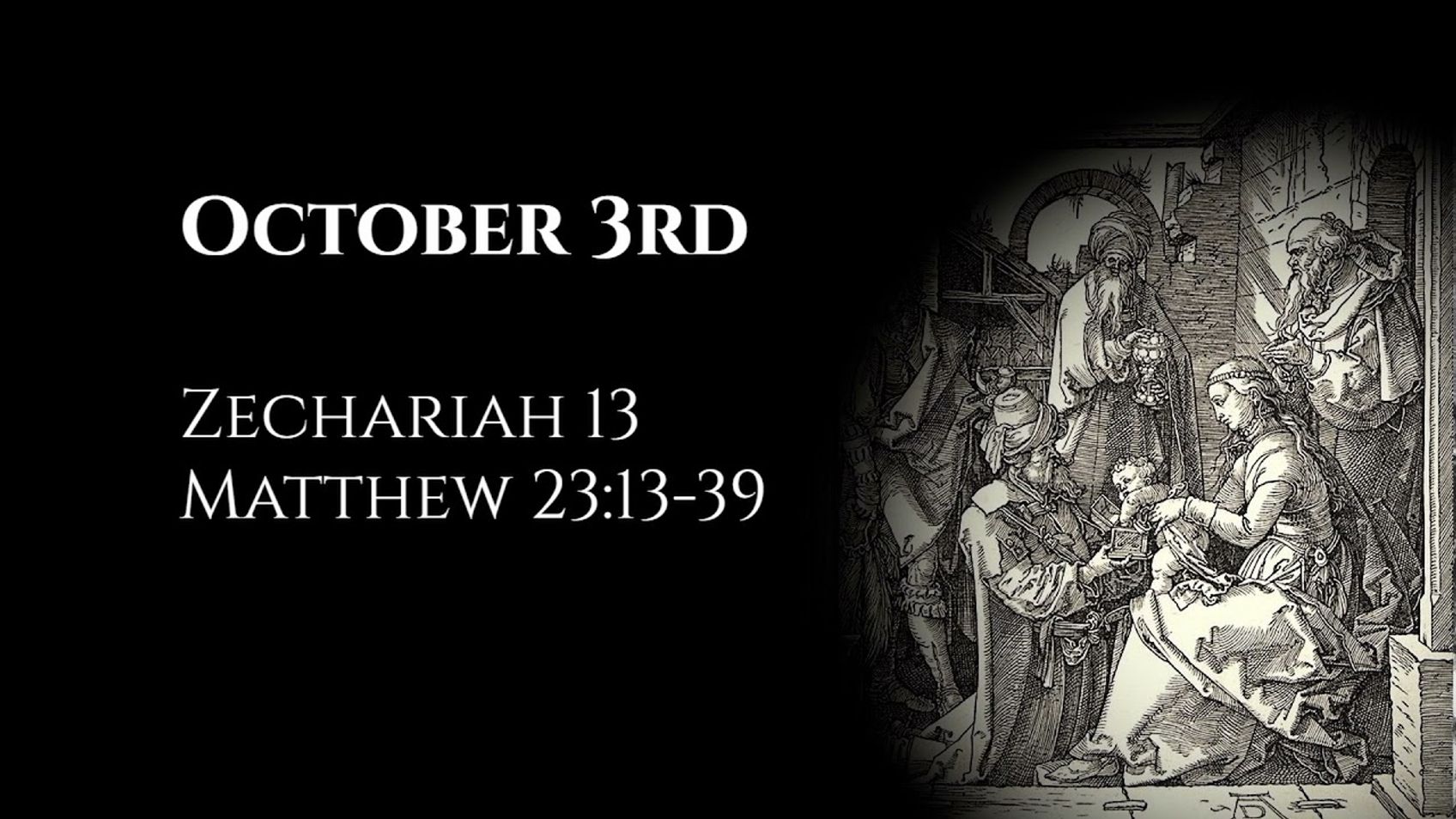October 3rd: Zechariah 13 & Matthew 23:13-39
October 2, 2021

Alastair Roberts
Strike the shepherd! Woes on the scribes and Pharisees.
My reflections are searchable by Bible chapter here: https://audio.alastairadversaria.com/explore/.
If you are interested in supporting this project, please consider supporting my work on Patreon (https://www.patreon.com/zugzwanged), using my PayPal account (https://bit.ly/2RLaUcB), or buying books for my research on Amazon (https://www.amazon.co.uk/hz/wishlist/ls/36WVSWCK4X33O?ref_=wl_share).
You can also listen to the audio of these episodes on iTunes: https://itunes.apple.com/gb/podcast/alastairs-adversaria/id1416351035?mt=2.
More From Alastair Roberts
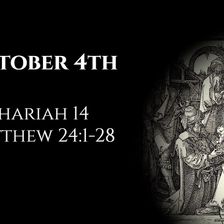
October 4th: Zechariah 14 & Matthew 24:1-28
Alastair Roberts
October 3, 2021
The destruction and transformation of Jerusalem. The Olivet Discourse.
My reflections are searchable by Bible chapter here: https://audio.alastairadv
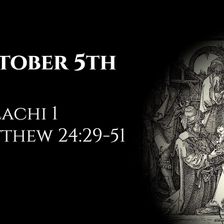
October 5th: Malachi 1 & Matthew 24:29-51
Alastair Roberts
October 4, 2021
The Lord's first two disputes with the people. The coming of the Son of Man.
My reflections are searchable by Bible chapter here: https://audio.alast
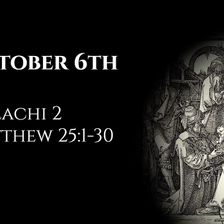
October 6th: Malachi 2 & Matthew 25:1-30
Alastair Roberts
October 5, 2021
A people riddled with infidelity. The Parable of the Talents.
My reflections are searchable by Bible chapter here: https://audio.alastairadversaria.c
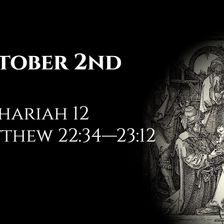
October 2nd: Zechariah 12 & Matthew 22:34—23:12
Alastair Roberts
October 1, 2021
The deliverance of Jerusalem from its siege. Jesus challenges the scribes and Pharisees.
My reflections are searchable by Bible chapter here: https:/
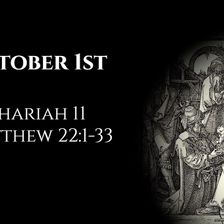
October 1st: Zechariah 11 & Matthew 22:1-33
Alastair Roberts
September 30, 2021
The rejection of the shepherd. The Parable of the Wedding Feast.
My reflections are searchable by Bible chapter here: https://audio.alastairadversari
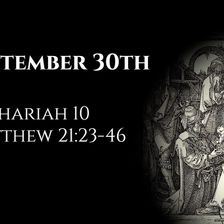
September 30th: Zechariah 10 & Matthew 21:23-46
Alastair Roberts
September 29, 2021
A new Exodus from oppression and restoration in the land. Jesus teaching parables in the temple.
My reflections are searchable by Bible chapter here:
More on OpenTheo

Lora Ries: Border Security and Immigration Policy
Knight & Rose Show
December 7, 2025
Wintery Knight and Desert Rose welcome Lora Ries to discuss border security and immigration policy. They explore Biden's policy changes, like ending R

Why Does the Bible Teach You How to Be a Proper Slave Owner?
#STRask
November 13, 2025
Question about why it seems like the Bible teaches you how to be a proper slave owner rather than than saying, “Stop it. Give them freedom.”
* It s

Why Is It Necessary to Believe Jesus Is God?
#STRask
February 19, 2026
Questions about why it’s necessary to believe Jesus is God, whether belief in the Trinity is required for salvation, and why one has to believe in the

Prove to Me That Jesus Is Not a Created Being
#STRask
January 26, 2026
Questions about why we should think Jesus is not a created being, and what it means to say God became fully human if part of being human means not bei

Is It a Sin to Feel Let Down by God?
#STRask
November 6, 2025
Questions about whether it’s a sin to feel let down by God and whether it would be easier to have a personal relationship with a rock than with a God

Shouldn’t I Be Praying for My Soul Rather Than for Material Things?
#STRask
February 2, 2026
Questions about whether we should be praying for our souls rather than for material things, why we need to pray about decisions, whether the devil can

How Would You Convince Someone That Evil Exists?
#STRask
November 17, 2025
Questions about how to convince someone that evil exists, whether Charlie Kirk’s murder was part of God’s plan, whether that would mean the murderer d

How Should I Respond to an LGBTQ Person Who Says He Feels Good About Who He Is?
#STRask
March 2, 2026
Questions about responding to an LGBTQ person who says he feels good about who he is, and whether—since we all have sin in our life we don’t consider

What About Those Who Never Heard the Name of Jesus?
#STRask
December 22, 2025
Questions about what will happen to those who never heard of Jesus or were brought up in a different faith, whether there’s biblical warrant to think

Are You Accursed If You Tithe?
#STRask
December 15, 2025
Questions about whether anyone who tithes is not a Christian and is accursed since Paul says that if you obey one part of the Mosaic Law you’re obliga

The Man on the Middle Cross with Alistair Begg
Life and Books and Everything
November 10, 2025
If you haven’t seen the viral clip, go see it right now. In this episode, Kevin talks to Alistair about the preaching clip he didn’t intend to give, h

What Are Some Good Ways to Start a Conversation About God with Family Members?
#STRask
October 30, 2025
Questions about how to start a conversation about God with non-Christian family members, how to keep from becoming emotional when discussing faith iss

Protestants and Catholics: What’s the Difference? With Chad Van Dixhoorn, Blair Smith, and Mark McDowell
Life and Books and Everything
November 26, 2025
How should Protestants think about the Catholic Mass? About the Eucharist? About the history and development of the papacy? In this panel discussion,

Why Would Any Rational Person Have to Use Any Religious Book?
#STRask
December 8, 2025
Questions about why any rational person would have to use any religious book, whether apologetics would be redundant if there were actually a good, un

Is Greg Placing His Faith in the Wrong Thing?
#STRask
February 12, 2026
Questions about Greg placing his faith in his personal assessment of which truth claims best match reality rather than in the revelation of God in Jes
